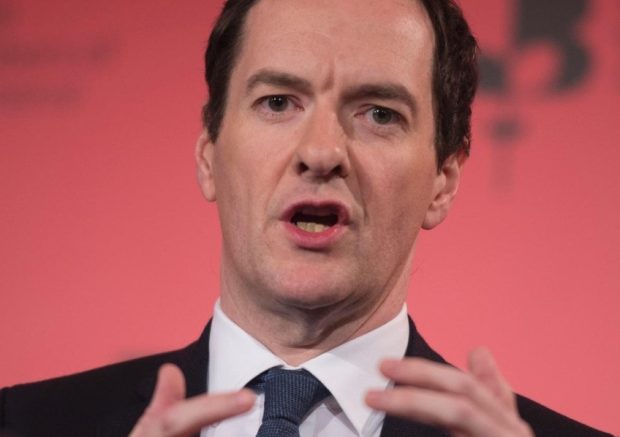Dear Members and Supporters
Your support is always appreciated and needed. We ask you to contact family and friends and ask them to join the Campaign for an English Parliament. England urgently needs a collective voice and the North of England does need urgent investment. However over the last few days with the TATA steel planned closure it has become clear that England needs a First Minister. The following article is worth reading and I have taken just two points as they need to be noted. One is that the North of England is not a region and regional sovereignty is being floated as an idea again.
- The political temperature has been raised with a combination of increased devolved powers for Scotland, a renewed push for independence by the Scottish Nationalists and an opportunity to focus on domestic if not regional sovereignty in the imminent EU referendum
- Yet the reaction has been frosty: a survey by MarketVoice underpins this sentiment highlighting that 70 per cent of Northern businesses express doubt over the viability of the Government’s plans to revitalise the region’s economy.
Best Eddie
Please do not forget to ask family and friends to become members
David Kilduff: Has the Northern Powerhouse lost its way?
George Osborne has staked his reputation on the Northern Powerhouse.
00:00 Friday 01 April 2016
GEORGE Osborne said recently: “I said we would build the Northern Powerhouse. We’ve put in place the mayors. We’re building the roads. We’re laying the track. We’re making the Northern Powerhouse a reality and rebalancing our country.”
The Northern Powerhouse has its roots a decade ago in the ambition of the then Deputy Prime Minister John Prescott. He had a vision for devolved regional government across three regions (North West, North East and Yorkshire & the Humber) in his plans for the Northern Way, which were shelved by a new Conservative-led government in 2010 – until dusted down by Mr Osborne as the Northern Powerhouse.
Lord Prescott had long held the view that the North lacked a coherent voice, thus entrenching its lack of economic progress compared to London and devolved power as compared to a much smaller Scotland, while having 15 million people and a £200bn plus economy.
Scottish devolution, coupled with the 2014 referendum for independence, saw David Cameron commit to a policy of English votes on English issues in Westminster while building momentum with city-region devolution deals, most notably in Manchester.
To some, this looked less like a strategy than an ill thought out response to address to address the longstanding ‘West Lothian’ question raised by Tam Dalyell in Parliament many years earlier in the throes of the debates on a Scottish parliament – highlighting the democratic imbalance between the voting rights and scope of Scots MPs and their English counterparts.
The political temperature has been raised with a combination of increased devolved powers for Scotland, a renewed push for independence by the Scottish Nationalists and an opportunity to focus on domestic if not regional sovereignty in the imminent EU referendum.
This all points towards an uncertain, if not unattractive, short-term economic and political landscape in Britain.
Mr Osborne made a number of mentions of the Northern Powerhouse in his Budget last month (six in all) and the Chancellor has become the politician most identified with the policy.
He has sought to seize the opportunity to bring a sense of balance and unity to an increasingly disillusioned hinterland contrasted with the social and economic bubble that is London.
Fundamental to the objective of accelerated social and economic development is the belief that the economic mass of the North can rebalance the economy primarily through boosted connectivity in improved infrastructure.
This is with a view to creating a homogenous economic unit of combined Northern cities to encourage transport connectivity as a catalyst for wealth creation. This strategy underpins the philosophy behind Mr Osborne’s ambitious infrastructure plans, giving the green light to HS3, linking Manchester and Leeds and a smarter four-lane M62, as well as a potential tunnel development between Manchester and Sheffield.
Yet the reaction has been frosty: a survey by MarketVoice underpins this sentiment highlighting that 70 per cent of Northern businesses express doubt over the viability of the Government’s plans to revitalise the region’s economy.
Some Northern leaders have been privately known to argue strongly that HS2 is a bad investment – wary of the need to make it quicker to get to London whilst believing that less money could be better spent on education, improved housing infrastructure, incentives for business and better connectivity with overseas markets through air and shipping infrastructure.
The lion’s share of funding pledged towards the Northern Powerhouse will go on transport infrastructure.
This comes as no surprise because there is strong evidence in support of a link between productivity, economic growth and strong infrastructure. In turn, the North should see greater investment and higher employment rates.
This is no surprise for political historians – Michael Heseltine espoused as much for the North in the early 70s with a surge in (road) infrastructure investment.
Yet this focus is perhaps risking oversimplifying the issue: Given reliance on the internet, the increase in agile and home working by self employed and employed alike, wouldn’t smarter connectivity through high performance broadband be seen as a smarter investment than a modest increase in journey time?
Investment in skills, training and education will boost employability in key sectors such as technology, science and innovation in the North.
This goes hand-in-hand with increased devolution, affording regions the ability to invest in and shape their own futures and allowing those closer to the electorate to manage issues in a transparent, accountable and some would say Northern way.
David Kilduff is a partner and Head of Energy Infrastructure and Government at law firm Walker Morris LLP.


Be the first to comment on "Has the Northern Powerhouse lost its way?"